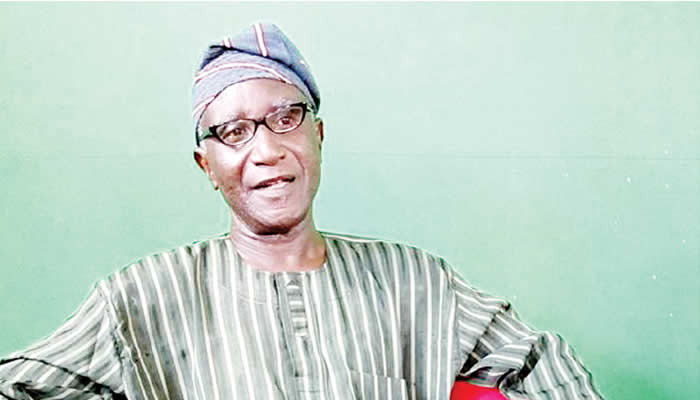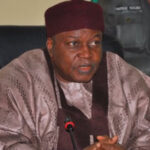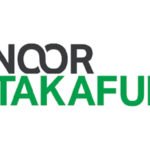
In this interview with Deborah Dan-Awoh, an aviation consultant, Group Captain John Ojikutu (retd.), examines various challenges in the sector and the way forward
Amid the Federal Government’s intervention in the aviation sector, the industry has been on a downward spiral. What are the causes of these?
What’s the reason behind the intervention? The Nigerian Civil Aviation Authority is there to oversee the industry. The ministry’s responsibility is to draw out policy guidelines for the civil aviation authority to provide regulations. That is the way the job is separated. Unfortunately, what we have seen in the last seven to eight years now is that the same ministry drawing out policies is the same body operating the policies. It is never done, and that is why we are where we are. The NCAA is practically doing nothing. The operators are also taking directives from the ministry. Every operator has its Act, and there is an Act for FAAN, NAMA, AIB, and others. And the Act is drawn with a policy from the ministry. So, the problem we are having now is we do not know who is regulating. For example, all the money in the industry is not recoverable. We have the intervention of 2007. How much of the intervention funds have been used or recovered between 2007 and 2022?
Apart from the revenue the industry earns, how much have they remitted? Just last year or two years ago, they were asked to remit 25 per cent of their earnings and they told the government it was not possible.
And what has the government done about it? We are taking money from other social services like roads and ASUU and putting it into the aviation industry. How many people benefit from these intervention funds? How much have we invested in road transport in the last 10 years? We have been building Lagos-Badagry road since the time of Obasanjo. It shows we are not serious. That is why I am in support of the concession of the airport, but there are many clauses around that. If we are going to concession airports, how much money is expected to be generated from it? What is the baseline of income? Have we been able to work it out? No, because, as of today, they do not know how much they generate from each airport.
There have been complaints from airline operators that high taxes and surcharges by NAMA and others are overwhelming them. Do you think this has made airlines unprofitable?
I do not think so. Most of them talk because they are coming into the industry to make money and go away. How can you come into an industry and pay for the services? The problem is that they do not have robust business plans before coming into the industry. Unfortunately, the regulatory agency that is supposed to check their business plans didn’t do a thorough job before allowing them to run. When are you coming into the industry? Which aircraft or equipment do you want to use to come into the industry? Where do you want to go within the industry? How many passengers are you expecting within that area? Those are the things to draw out, and people in NCAA should be able to look into these things. Many of them are recycling the business plans of airlines that have collapsed. In the days of Nigerian Airways, the airline will not run 737 to Kano four or five times a day. The maximum was going to be twice. It will be the 737 first in the morning, and subsequent trips to Kano are F28.
Secondly, the attempt to maintain air charges from the last 10 years does not make economic sense, especially as we are not manufacturing fuel here. When we were manufacturing the fuel here, tickets were sold for $100. The dollar has stayed the same since 1990. Rather, the dollar has been increasing against naira.
So, how can you be carrying passengers for N25,000 when the dollar was N500? I told them then that you can only carry passengers for N50, 000. When we were flying at $100, the country was producing Jet A1. Today, you are importing fuel, and the dollar has increased considerably against naira, yet you still want to sell for the same price.
Third, they are complaining about NAMA charges. How much are they charging? How many of them are paying for landing and parking? I told them if you are paying anything less than $500 for landing and parking, then you are not being serious. Even those who are collecting less than that from you, if they concession that airport today and give it to people who know the value of services to provide, most of these airlines will close shop.
I worry that we are not doing the business the way we should. The operational cost of some airlines today per hour is not less than $1000. Most airlines that fly into the country are about $3000 per hour. So, when you fly six hours, do the maths. That tells you all these big airlines across do $4000 per hour.
There have been opinions that domestic airlines should be allowed to compete as national carriers to drive healthy competition. Is this advisable?
They have to understand what is called the Bilateral Air Service Agreement. In the BASA, it is stated there that the “national carrier” question we should ask is, do we have a national carrier? If we do not, we can find a way to designate flag carriers. Arik and Aero in those days went round the countries on their own to go and negotiate with the countries. Like Airpeace has done with Emirates, South Africa.
It is not something that officials of the ministry will need to follow them around to negotiate, no. Do not compare yourself with American airlines. They are all flag carriers with support from their governments. Any American airline is a flag carrier unless we designate our private airlines as flag carriers and give them room to be in the BASA.
It is not that they will go to all of them. They did this for ADC, Aero, and Afri Jet in the 90s. After some time, when it did not work, ADC went to Liberia and Sierra–Leone, flying as national carriers for them. If you cannot get a national carrier, put two airlines together, go for their assets and debts and find investors to buy into it. There is nothing that AMCON can do. AMCON is just messing up everywhere. Find the assets of two airlines, find their debts, separate the debts and find the balance. Then, look for people to buy into them.
If you cannot combine the two airlines, then separate them, and see which one will go out quickly. This is for intercontinental flight carriers.
This is what should be done. They said Arik owed over N300bn within four or five years after coming into operation. And I said, if Arik is making N10bn profit every year without making the dollar, it will take a minimum of 10 years for Arik to clear the debt under the condition with AMCON. It will even take a minimum of 30 years, but now they are talking of a national carrier. To make it worse, we are going to join Ethiopian Airlines.
I have warned, do not to go into any partnership with your competitors in BASA. Look for people that are not your competitors in BASA from outside Europe and US first. That is the only way we can move forward. We have done this thing before with South African Airlines, but it did not work. It seems we have not learned from past experiences and that is why I have no confidence in any move being made now.
Except we decide to concession the airport, but don’t concession the aeronautical services.
If foreign airlines pull out of the country, would it force domestic airlines to rise to the occasion?
Foreign airlines contribute a minimum of 80 per cent of our commercial aviation in the country. Our local airlines are not paying for landing and parking. How much are they paying? Each of the airlines that come into this country pays nothing less than $2000. So, compare $2000 to someone paying $100. If there is anything that happens and they pull out the way they are doing now, obviously, we will lose.
Earlier, you kicked against the N36bn approved for the Total Radar Coverage of Nigeria (TRACON) and the safety tower project. Shouldn’t these be laudable projects?
What I am saying is, what do we aim to achieve with TRACON? Of course, it needs upgrading, but it was supposed to be done almost every year. The programme for upgrading was given to NAMA. There are so many things wrong with TRACON. One, the contract for TRACON was signed by a managing director. Three months after it was signed, they removed the primary reader from it – by the same person who signed it. Later on, another MD removed training from the cost. Another person removed the Very Small Appetite Terminal. It was in this process that we had issues. In fact, it got to the stage that one of the new MDs was going to cancel the whole programme but they had paid almost N30bn. TRACON was supposed to cost about $56m. What I am saying is after 10 years of commissioning, let us find out how much the maintenance cost is again. What I don’t know is if the money budgeted has plans for controller training.
In 2007, NAMA had a shortage of 300 controllers and there was a plan to train them. Between 2007 and now, how many airports have we opened, especially for states still managed by NAMA? So, how many have they trained so far?
NAMA is in the process of engaging some 100 Air Traffic Controllers in the next six years to shore up its manpower need. Is this a good move?
The question is, do they have sufficient air controllers to man all the airports they are managing? Have they filled all the gaps they have before, including the new airports being opened? Are they thinking of those retiring in the next six years? If they are looking at 100 in the next six years, that is 16 controllers for every year.
Despite insecurity claims, Nigeria was promoted to the second tier in the ICAO’s three-tier member-state-ranking system during the 41st ICAO Assembly. What are your thoughts on this?
We have been in category two for a long time. What is wrong with us getting to category one? We have been in category two since the ICAO audit of 2009. The regulatory agency should be up and doing on its audit of the airport. Let us find a way to differentiate between the perimeter fence and security firms.
What solutions will you propose to resuscitate the aviation sector in Nigeria?
There is nothing we can do unless we have an autonomous agency without interference from political officeholders who have interests in the operators. I thought that we would experience a drastic change in the aviation sector.





